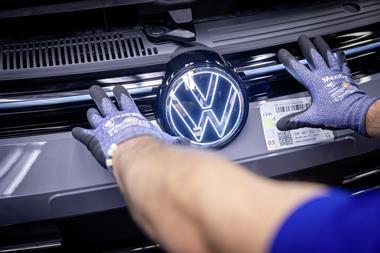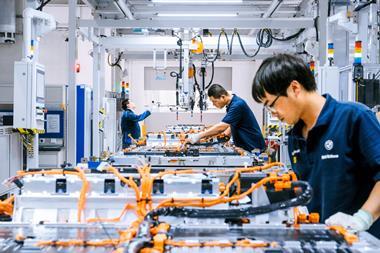 UK – The glass fibre-reinforced polymer (GFRP) springs, which have been developed in collaboration with an Italian supplier, offer weight-savings of 40% compared with steel and will be implemented on an executive Audi model by the end of the year.
UK – The glass fibre-reinforced polymer (GFRP) springs, which have been developed in collaboration with an Italian supplier, offer weight-savings of 40% compared with steel and will be implemented on an executive Audi model by the end of the year.
The core of the springs consists of long glass fibres twisted together and impregnated with epoxy resin. In production, a machine wraps additional fibres around the core at alternating angles of +/- 45° to the longitudinal axis, so that the tension and compression plies support each other and absorb the stresses on the component. Lastly, the blank is cured in an oven at more than 100°C. According to Audi, the manufacturing process requires “far less” energy than steel springs.
Compared with the steel variety, the polymer springs have thicker fibre strands, plus a slightly larger overall diameter and a lower number of coils. While a steel spring for an executive vehicle weighs around 2.7kg, a GFRP spring weighs 1.6kg. A set of four GFRP springs therefore offers a weight reduction of 4.4kg, half relating to the unsprung mass.
“The GFRP springs save weight at a crucial location in the chassis system,” commented Ulrich Hackenberg, member of the board of management for Technical Development at Audi. “We are therefore making driving more precise and enhancing vibrational comfort.”
Audi says the polymer material “exhibits outstanding properties” and is resistant to corrosion even after stone chipping, as well as chemicals such as wheel cleaners.


































